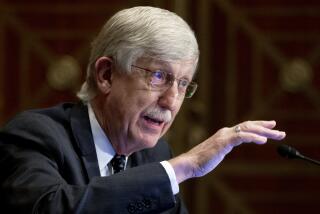Administration Ends ‘Star Wars’
So the Clinton Administration has decided to reduce the American ballistic missile defense program to a symbolic level (“ ‘Star Wars’ Era Ends as Aspin Changes Focus,” May 14). The media mention it and forget the next day, but I can’t shake the feeling that this will be a defining moment for the nation. Rather proximate future historians will ask why we slowed our efforts to raise the ramparts just as the number of barbarian tribes capable of launching fireballs over them was multiplying.
Hopefully, we’ll learn inexpensively; perhaps one missile (North Korean?), one city (Seattle?), and less than 1 million killed or maimed will re-instruct us in the value of vigilance.
MICHAEL J. NOWLAND
Simi Valley
Your article, “Reagan Attacks Clinton Over Plans to Kill ‘Stars Wars’ Program” (May 16), may be based on former President Reagan reading the May 3 issue of Aviation Week & Space Technology on the Russian surge of space activity. According to the magazine, in the first quarter of 1993, Russia has launched 18 space missions compared with eight for the United States. These include three military navigation spacecraft, two military communications spacecraft, two imaging reconnaissance satellites, two missile warning spacecraft, two new electronic satellites and a new ocean surveillance spacecraft.
The message may be that Boris Yeltsin is the front man but that the Russian military is still calling the shots.
FRANK O’LEARY
Redondo Beach
Now they tell us! SDI (“Star Wars”) no longer exists. Well, not exactly; all they have done is change the name.
This might be the time to admit the truth: Like the emperor’s clothes, this cruel hoax, perpetrated on a credulous President by a Hungarian Dr. Strangelove, never did exist. Nevertheless, it’s going to go on costing the taxpayer $3.8 billion a year. Rather expensive, especially in view of the $300 billion or so it has cost us to date.
Other bits of the emperor’s clothes are still with us. Like the $500 billion for the S&L; debacle, and the national debt that rose from $700 billion to $4 trillion during the reign of the emperor and his heir apparent.
FREDERIC E. PAMP
Santa Ynez
More to Read
Sign up for Essential California
The most important California stories and recommendations in your inbox every morning.
You may occasionally receive promotional content from the Los Angeles Times.










